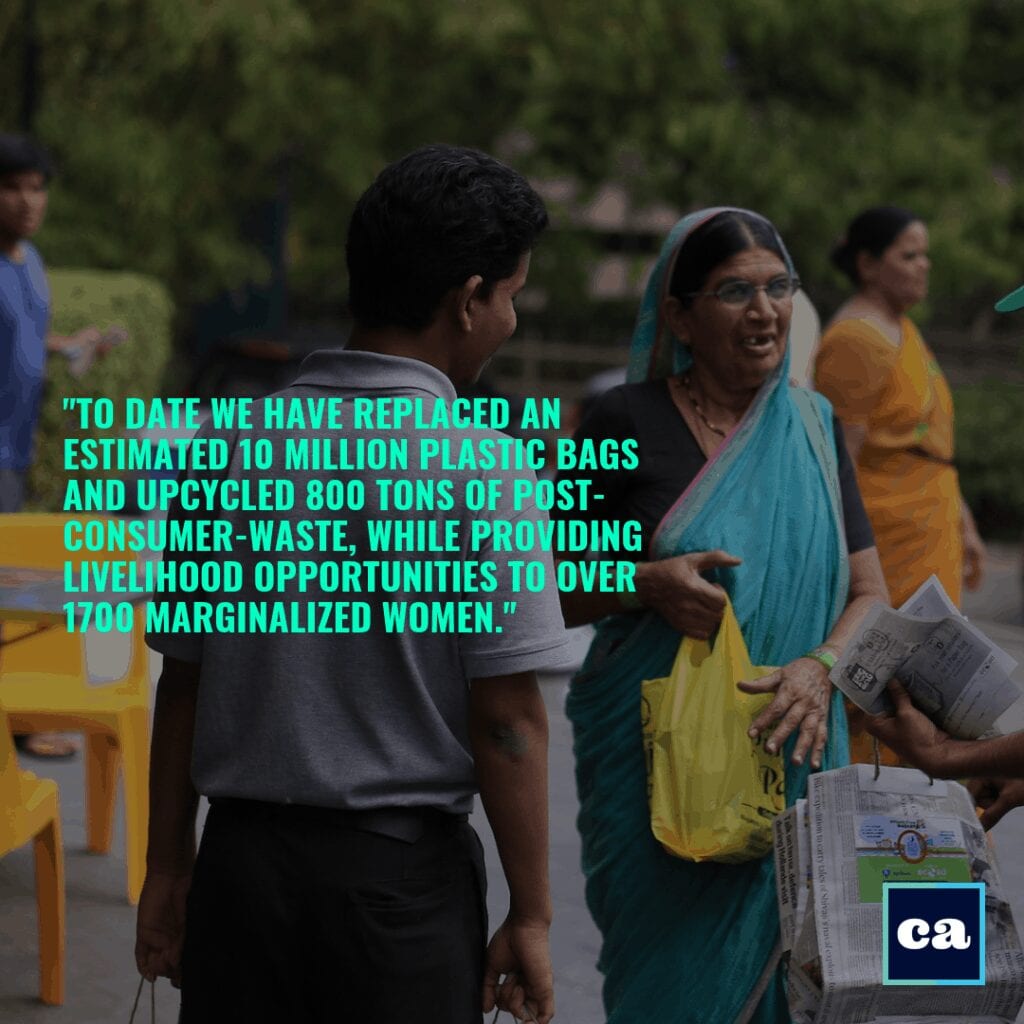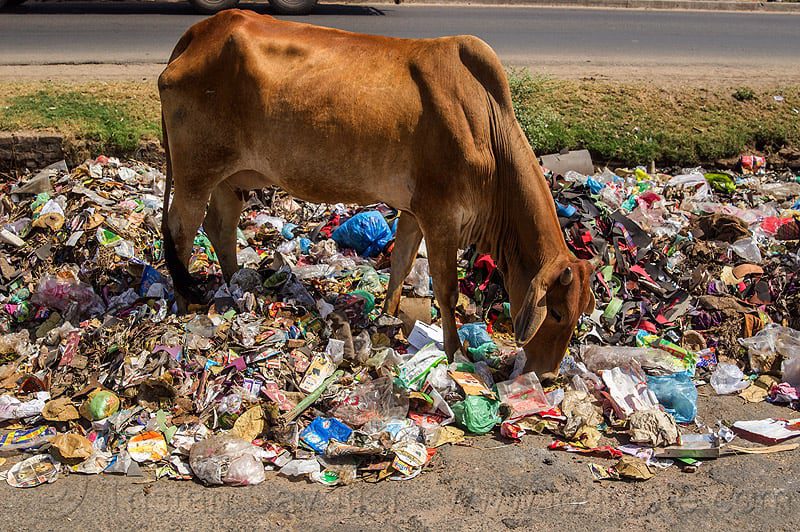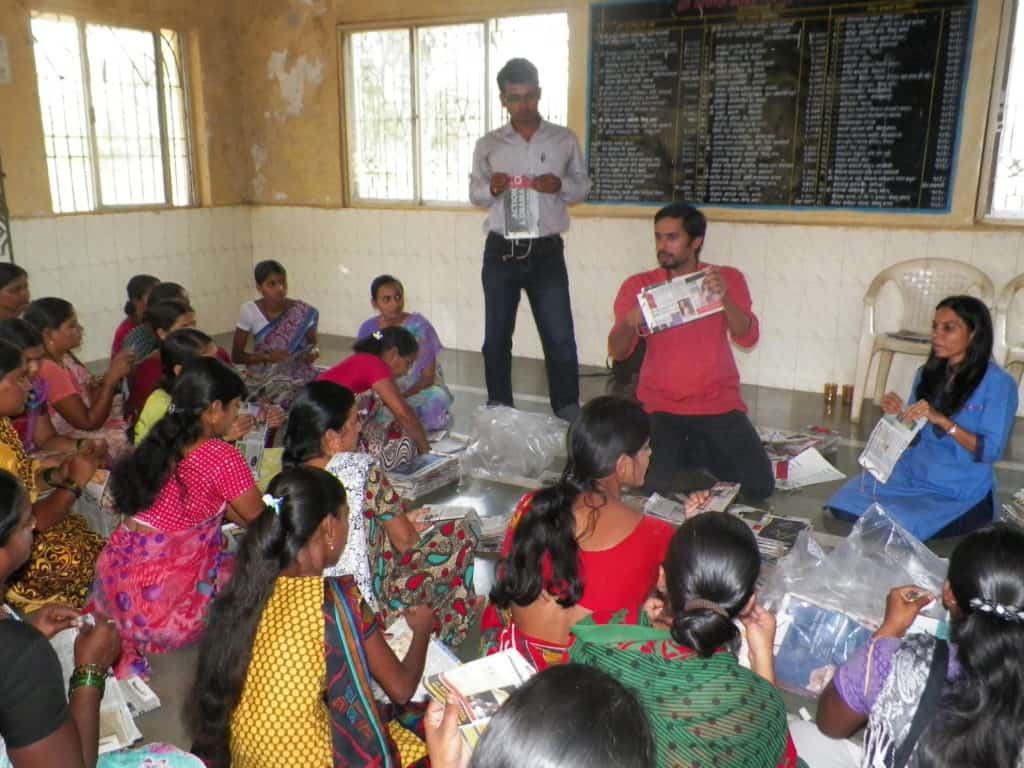Upon seeing children in urban slums playing amidst a heap of plastic garbage, social entrepreneur Rohit Nayak made it his mission to create sustainable alternatives to plastic bags, and empower disadvantaged communities to be active champions combating India’s waste management and plastic crisis.
While India’s consumption of plastic equals only half of the global average, the country grapples with some of the world’s worst levels of waste mismanagement. Much of the country’s recycling sector is informal and unregulated, operating without government oversight.
Every day, India generates 33.1 million pounds of plastic waste of which only 19.8 million pounds are collected and recycled, leaving the rest to contaminate waterways, clog drains, poison animals and cause soil degradation.

Strewn plastic wrappers, cups and bags are a common sight on the streets of Indian cities and beaches, and make up part of the mountain-sized landfills on the outskirts of major metropolitan areas such Delhi.
What? Recognizing the devastating impact of India’s plastic crisis, Nayak set up EcoAd, which offers upcycled alternatives to plastic bags made out of newspaper and other paper scrap, and creates sustainable employment opportunities for women in underprivileged communities in the process.
“India is one of the only countries where newspaper subscription is still increasing by 2% year-on-year. What is even more shocking is that 10% of the newspaper never gets delivered, and the remaining 90% is trashed in less than a day. EcoAd, through its proprietary process, adds 3 months of extra lifecycle to a piece of newspaper before it’s recycled,” shares Nayak.
At the same time, by employing women of disadvantaged backgrounds to make the upcycled bags, EcoAd enables the most marginalized class of people to actively fight the problem that is affecting them the most.

“Most of them have never gone to school, held a salaried job or even stepped out of their home. They have been financially dependent on the male members of their family. They have not been respected in their own families and have not had a say in the household decision-making process, even when it comes to making choices for their kids.”
“With the earnings from the bag they make, they are able buy sanitary pads for their daughters, books for their kids, home appliances to make their lives easier, and even scooters to make their commute faster.”
Rohit Nayak
Impact: To date, EcoAd has replaced an estimated 10 million plastic bags and upcycled 800 tons of post-consumer-waste, while providing livelihood opportunities to over 1700 marginalized women.

To maximize its social and environmental impact, similarly open source softwares, EcoAd employs a copyleft business model. The social venture has so far received 250 franchise enquiries, and over half a million people have used its online training content to replicate EcoAd bags across South Asia.
Listen to Causeartist podcasts here.








